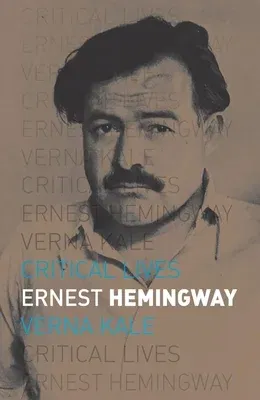Ernest Hemingway has enjoyed a rich legacy as the progenitor of modern
fiction, as an outsized character in literary lore who wrote some of the
most honest and moving accounts of the twentieth century, set against
such grand backdrops as the bullrings of Spain, the savannahs of Africa,
and the rivers and lakes of the American Midwest. In this portrait of
the Nobel-prize winner, Verna Kale challenges many of the long-standing
assumptions Hemingway's legacy has created. Drawing on numerous sources,
she reexamines him, offering a real-life portrait of the historical
figure as he really was: a writer, a sportsman, and a celebrity with a
long and turbulent career.
Kale follows Hemingway around the world and through his many roles--as a
young Red Cross volunteer in World War I, as an expatriate poet in 1920s
Paris, as a career novelist navigating the burgeoning middlebrow fiction
market, and as a seasoned but struggling writer still trying to draft
his masterpiece. She takes readers through his four marriages, his
joyous big game expeditions in Africa, and his struggles with celebrity
and craft, especially his decades-long attempt at a novel that was
supposed to blow open the boundaries of American fiction and upset the
very conventions he helped to create. It is this final aspect of
Hemingway's life--Kale shows--that wreaked the greatest havoc on him,
taking a steep physical and mental toll that was likely exacerbated by a
medical condition that science is only beginning to understand.
Concise but insightful, this book offers an acute portrait of one of the
most important figures of American arts and letters.

